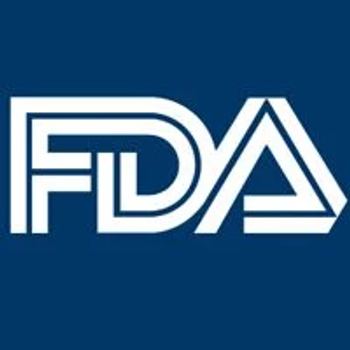Articles by Gina Columbus

Sintilimab injection plus pemetrexed and platinum-based therapy led to a statistically significant improvement in progression-free survival compared with chemotherapy alone as a first-line treatment for patients with locally advanced or metastatic nonsquamous non–small cell lung cancer.

The FDA has granted a breakthrough therapy designation to osimertinib for the adjuvant treatment of patients with stage IB, II, and IIIA EGFR-mutated non–small cell lung cancer following complete resection with curative intent.

The FDA has approved the CAR T-cell therapy brexucabtagene autoleucel (Tecartus; formerly KTE-X19) as a treatment for adult patients with relapsed/refractory mantle cell lymphoma.

The National Medical Products Administration in China has approved pembrolizumab for the treatment of patients with locally advanced or metastatic esophageal squamous cell carcinoma whose tumors express PD-L1 as determined by an approved test, following disease progression on 1 prior line of systemic therapy.

China's National Medical Products Administration has approved zanubrutinib (Brukinsa) for the treatment of adult patients with chronic lymphocytic leukemia and small lymphocytic lymphoma who have received at least 1 prior therapy, as well as for the treatment of adult patients with mantle cell lymphoma who have received at least 1 prior therapy.

The FDA has placed a partial clinical hold on a phase I trial assessing the autologous T-cell therapy ACTR707 in combination with rituximab for patients with CD20-positive, B-cell non-Hodgkin lymphoma due to a safety concern.

The FDA has granted a breakthrough therapy designation to JNJ-61186372 for the treatment of patients with EGFR-positive metastatic non–small cell lung cancer who harbor exon 20 insertion mutations, and whose disease has progressed on or after platinum-based chemotherapy.

The triplet therapy of ixazomib, lenalidomide, and dexamethasone showed an improvement in progression-free survival, but it was not statistically significant, compared with lenalidomide/dexamethasone alone for patients with newly diagnosed multiple myeloma who were ineligible for stem cell transplant.

With the main toxicities associated with CAR T-cell therapy being cytokine release syndrome and neurotoxicity, a multidisciplinary approach is vital to providing inclusive care to patients receiving this type of treatment.

The FDA has granted a breakthrough therapy designation to Debio 1143, an inhibitor of apoptosis protein antagonist, for the treatment of patients with previously untreated, unresectable, locally advanced squamous cell carcinoma of the head and neck in combination with standard cisplatin-based concomitant fractionation chemoradiation therapy

The FDA has granted a priority review designation to a new drug application for lurbinectedin as a treatment for patients with small cell lung cancer who have progressed following platinum-containing therapy.

The FDA has granted a priority review designation to a biologics license application for the investigational CAR T-cell therapy KTE-X19 as a treatment for adult patients with relapsed/refractory mantle cell lymphoma.

The European Medicines Agency has validated and is now evaluating a Marketing Authorization Application for the CAR T-cell therapy KTE-X19 for the treatment of adult patients with relapsed/refractory mantle cell lymphoma.

The FDA has granted a priority review designation to a supplemental new drug application for olaparib (Lynparza) for the treatment of patients with metastatic castration-resistant prostate cancer who have deleterious or suspected deleterious or somatic homologous recombination repair gene mutations, and who have also progressed on prior therapy with a new hormonal agent.

The first-line combination of sintilimab injection plus pemetrexed and platinum-based therapy showed a statistically significant improvement in progression-free survival compared with chemotherapy and placebo in patients with advanced or recurrent nonsquamous non–small cell lung cancer who did not harbor EGFR or ALK abnormalities, according to an interim analysis of the phase III ORIENT-11 trial.

A biologics license application has been submitted to the FDA for the investigational CAR T-cell therapy KTE-X19 as a treatment for adult patients with relapsed/refractory mantle cell lymphoma.

The CAR T-cell therapy tisagenlecleucel (Kymriah) showed similar real-world efficacy and safety findings to that of the JULIET trial in the treatment of adult patients with relapsed/refractory diffuse large B-cell lymphoma.

Blinatumomab (Blincyto) as post-reinduction consolidation therapy before hematopoietic stem cell transplantation improved disease-free survival and overall survival by approximately 20% compared with intensive chemotherapy in pediatric and adolescent and young adult patients with high- or intermediate-risk of first relapse of B-cell acute lymphoblastic leukemia.

Treatment with the BCMA-targeted CAR T-cell therapy idecabtagene vicleucel was associated with a 73.4% overall response rate in patients with relapsed/refractory multiple myeloma, meeting the primary endpoint of the pivotal phase II KarMMA trial.

The investigational gene therapy nadofaragene firadenovec demonstrated a 3-month complete response rate of 53% in patients with high-grade, Bacillus Calmette-Guérin–unresponsive, non-muscle invasive bladder cancer with carcinoma in-situ with or without concomitant high-grade Ta or T1 papillary disease, meeting the primary endpoint of a phase III trial.

The FDA has granted a breakthrough therapy designation for abatacept for the prevention of moderate-to-severe acute graft-versus-host disease in patients who have undergone hematopoietic stem cell transplants from unrelated donors.

The FDA has granted an accelerated approval to zanubrutinib capsules for the treatment of adult patients with mantle cell lymphoma who have received ≥1 prior therapy.

Ixazomib significantly improved progression-free survival as a first-line maintenance therapy compared with placebo in adult patients with multiple myeloma who have not undergone stem cell transplantation, meeting the primary endpoint of the phase III TOURMALINE-MM4 study.

The FDA has granted a Regenerative Medicine Advanced Therapy designation to the investigational anti-BCMA CAR T-cell therapy CT053 for the treatment of patients with relapsed/refractory multiple myeloma.

The FDA has granted a breakthrough therapy designation to the MET inhibitor tepotinib as a treatment for certain patients with metastatic non–small cell lung cancer with MET exon14-skipping alterations.

The FDA has granted a breakthrough therapy designation to capmatinib (INC280) as a first-line treatment for patients with MET exon14 skipping—mutated non–small cell lung cancer.

The FDA has granted a priority review designation to a new drug application for zanubrutinib for the treatment of patients with mantle cell lymphoma who have received ≥1 prior therapy.

Olaparib demonstrated a statistically significant and clinically meaningful improvement in radiographic progression-free survival compared with enzalutamide or abiraterone acetate in patients with metastatic castration-resistant prostate cancer who harbor a homologous recombination repair gene mutation and have progressed on prior therapy with either androgen receptor inhibitor, meeting the primary endpoint of the phase III PROfound trial.

The FDA has approved pembrolizumab for the treatment of patients with recurrent locally advanced or metastatic squamous cell carcinoma of the esophagus whose tumors express PD-L1 (combined positive score ≥10) as determined by an FDA-approved test, with disease progression after ≥1 prior lines of systemic therapy.

Alison R. Sehgal, MD, discusses the latest developments with CAR T-cell therapy in lymphomas.


























